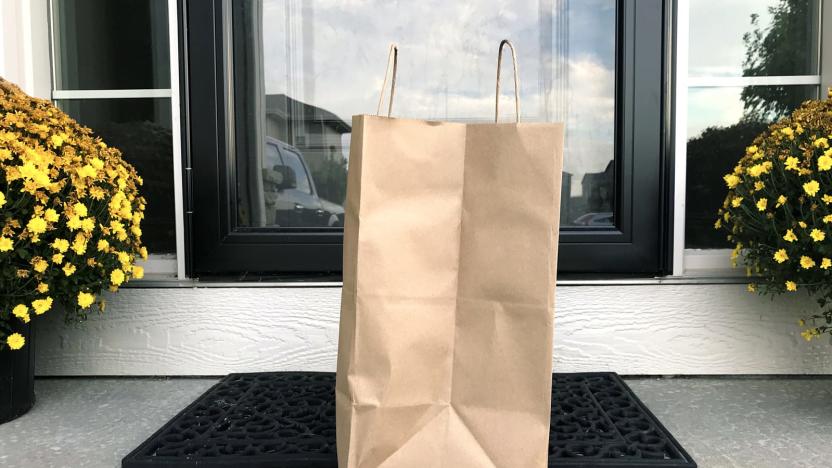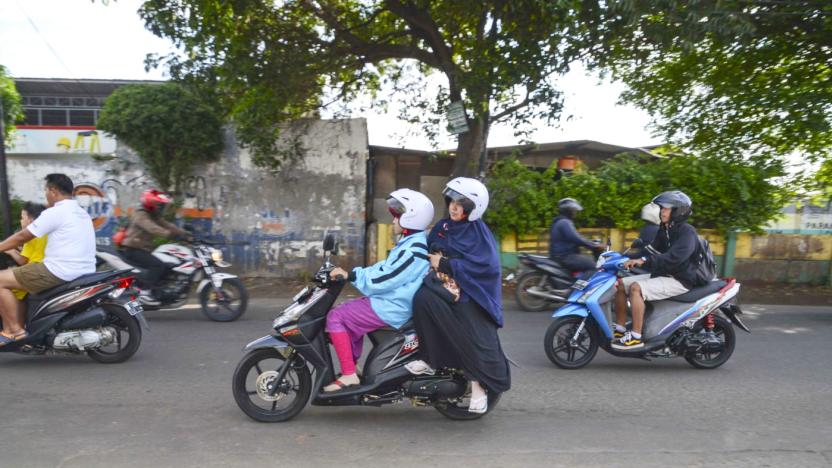SoutheastAsia
Latest

Google: Southeast Asia’s digital economy is surging
Google has begun looking beyond India to Southeast Asia for its "next billion" users. And its annual report on the region's internet economy gives us an insight as to why it's so crucial to the web giant. Home to 650 million people, Google projects Southeast Asia's digital economy will triple in size to $240 billion in the next seven years. So sharp has been its rise that Google has revised its growth expectations for the region (made in collaboration with Singapore sovereign fund Temasek) for the third year on the go.

Grab tacks grocery delivery onto its ride-hailing service
Grab, the ride-sharing company that devoured Uber's business in Southeast Asia, has announced that it's also getting into grocery delivery. Just like Uber in the US and other Western countries, the Singapore-based firm already offers quite a few options other than pure ride hailing in the region, including food delivery and electronic money transfers. Clearly, though, it's still looking for more ways to put its driver network to good use. Grab has teamed up with Southeast Asian grocery delivery provider HappyFresh to launch GrabFresh as part of its strategy to give partners access to its technologies. That means HappyFresh will essentially be using Grab's driver network and payment services to deliver groceries to its customers.

Uber is reportedly preparing to sell its Southeast Asia business
Late last year Uber sold off its business in China to a competitor, and now it looks like the Southeast Asia region could follow a similar path. CNBC reports that it's preparing to make a deal with Grab, a company that claimed to have 95 percent of ride-hailing business in the region last year. Grab was in the middle of raising a $2.5 billion round of investments from sources including (recent Uber investor) Softbank when it made that claim, and the rumored deal would give Uber a "sizable" stake in its competitor. If this happens, it could, like the company's settlement with Waymo over trade secrets, help Uber pave the way for an IPO soon.

Uber's experimental service in Bangkok hails motorcyles
In Bangkok, Thailand, people can fire up Uber and summon motorbikes instead of cars. The San Francisco company has kicked off an experimental service called UberMoto in the Asian capital, according to The Wall Street Journal. Motorcycle taxis are a popular mode of transportation in various Asian countries, including China, Singapore, Vietnam, Thailand, the Philippines, India and Indonesia. A lot of people choose to ride them, because they're small and can easily slip in between cars and bigger vehicles in the middle of a traffic jam.

'Titanfall' is going free-to-play in Asia
Free-to-play games are big business outside of America and Titanfall is the next big shooter joining the ranks of Halo and Call of Duty in taking that route. Publisher Electronic Arts is working with Nexon (the company behind Maple Story and FIFA Online 3) to take developer Respawn Entertainment's mech-based shooter to China, Japan, Korea, Macau and regions of Southeast Asia including Cambodia and Thailand. Naturally, it'll only be a PC version of the game since that plays well in internet cafes, but any other details aren't known at this point. However, the F2P model could actually translate pretty easily considering the game's Burn Card system that rewards players with single-use power-ups is similar to how existing microtransaction-based games function. Stand by for Titanfall, Asia.

Myanmar plans to open doors to foreign telcos for affordable cellular, internet service
Hefty price tags haven't exactly made cellphones ubiquitous in cash-strapped Myanmar. According to AFP, an estimated 96 percent of the nation's 60 million inhabitants don't own a mobile handset, but that might soon be changing. A new reform plan announced by Myanmar's Post and Telecommunication Minister, Thein Tun, lays out a strategy that could finally give said folks a crack at affordable cellular and internet services. If successful, the initiative will start a bidding process for international telcos to set up shop in the country, allowing the companies to partner with the state-owned telephone provider and the ISP Yatanarpon Teleport. There's no word on when the partnerships may coalesce, but here's to hoping that $200 SIM card registration fees in Myanmar soon become a thing of the past. Full details at the source link below. [Image credit: Shutterstock]

Cubic Telecom's Maxroam data SIM card lets you roam the globe without breaking the bank
It's never easy to travel the globe on a tight budget, but Cubic Telecom is doing its best to ease the financial burden a bit, with its new Maxroam card -- a global data SIM card that allows American travelers to access the web for just 65 cents per MB. The card, available without any subscription or contract, works within a total of 43 countries, including India, Australia, South Africa and Europe. All you have to do is purchase the card, insert it in your unlocked handset and activate it online. From there, you'll be able to use Maxroam until you reach the data limit, without worrying about expiration dates or time constraints. It's available now at the source link below, though as Cubic Telecom points out, final data rates may vary with the euro/dollar exchange rate.

Google to build a trio of data centers in Asia, earmarks $200 million for expansion
IT specialists in Singapore, Taiwan and Hong Kong better start polishing their resumes, because Google is rolling into town. Yesterday, Big G announced plans to build a brand new data center in each of the three Asian locales, as part of an expansion slated to cost at least $200 million. When completed, these complexes will represent the company's first fully owned and operated data centers in the burgeoning Asia-Pacific region -- where, according to Asia policy communications manager Taj Meadows, Google is "seeing large numbers of new users coming online every day". The facilities in Hong Kong and Taiwan are expected to cost around $100 million each, though the price tag for the Singapore branch remains a mystery. Big G hopes to finish construction in one to two years, though it didn't say when it would begin -- nor, for that matter, whether seawater tunnels would be involved.

Southeast Asian nations agree on a digital set-top box specification
In order to facilitate the digital TV changeover in the region, the Association of Southeast Asia Nations (ASEAN) recently laid out a standard spec for both SD and HD set-top boxes. They're still talking things over like interactive TV, MPEG-4 licensing fees, a standard for digital sound and 720p/1080i transmission, but expect this to push forward digital TV efforts in Brunei, Indonesia, Malaysia, Myanmar, Singapore, Thailand and Vietnam. Another part of the deal is a new ASEAN HD Centre to facilitate HD co-productions in the area, so even if your vacation doesn't include Southeast Asia more HD content could be headed this way.

Southeast Asia's first HD channel, HD5 launches Nov 11
Southeast Asia is finally ready to officially launch its first HD channel, when MediaCorp rolls out HD5 in 1080i on November 11. The channel will be a simulcast of Singapore's existing channel 5, and will only be in HD about 30% of the time to start. MediaCorp has already made deals with Voom and others for HD content, and plans to increase that number to 50% during prime time over the next 18 months. About 10,000 homes are already testing HDTV via SingTel's IPTV service, along with the 1,000 households previously testing the service.





